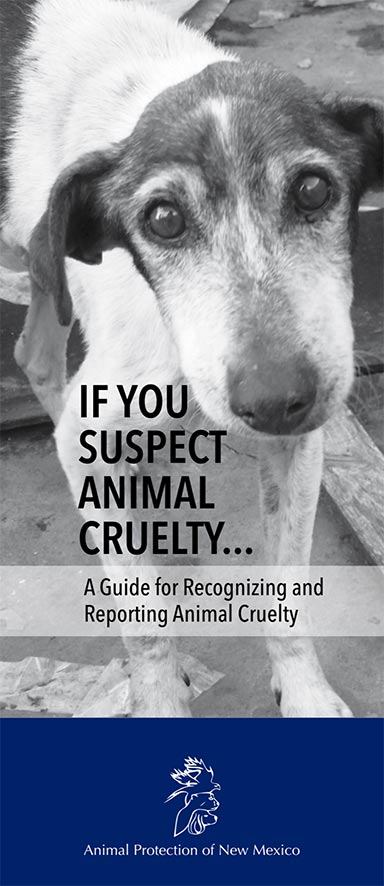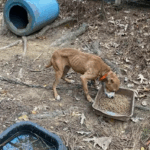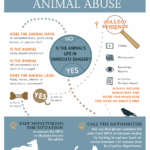Animal cruelty is a pressing concern that evokes strong emotions and a passionate response from those who witness it. In Indiana, as in many other states, the legal framework exists to protect animals from mistreatment. However, understanding how to properly report animal cruelty can sometimes feel overwhelming due to the procedures involved and the myriad of agencies responsible for handling such cases. This article will elucidate the steps necessary to report animal cruelty in Indiana, provide essential local contact numbers, and offer insights into the legal context surrounding such acts of inhumanity.
To begin with, it is crucial to recognize what constitutes animal cruelty. Under Indiana law, animal cruelty is defined as intentionally, knowingly, or recklessly inflicting injury upon an animal or failing to provide necessary sustenance, shelter, or veterinary care. This can include physical abuse, neglect, and abandonment. Understanding the nuances of these definitions is key, as it shapes how observers ought to respond when they suspect that an animal is in distress.
Once a situation of potential animal cruelty has been identified, immediate action should be taken. The first step involves documenting the circumstances in as much detail as possible. Take notes on the type of animal involved, the specific nature of the cruelty observed, the date and time of occurrence, and any identifiable traits of the perpetrator or their property. Visual documentation, such as photographs or videos, can be equally valuable. However, one must keep in mind the importance of maintaining personal safety and not intervening directly in potentially volatile situations.
Following documentation, the next logical step is to report the incident to the appropriate authorities. In Indiana, there are several pathways for reporting animal cruelty:
- Local Animal Control Offices: Most counties in Indiana have an animal control agency tasked with the regulation of animal welfare. The local animal control office is usually the first point of contact. Check your county’s government website for contact details and report the incident directly.
- The Indiana State Police: For immediate threats or serious situations, contact local law enforcement by dialing 911. The police are trained to handle various emergencies, including those involving animals.
- The Humane Society: The Humane Society of the United States offers resources and can assist in reporting cases of animal cruelty. They maintain a list of local humane officers who can take action on your report.
- Anonymous Hotlines: Indiana has made provisions for anonymous reporting through various hotlines designed for reporting animal abuse. These can be utilized when a witness prefers to remain confidential.
It is essential to include all relevant details when making a report. Be precise about what you observed, as vague descriptions can lead to misunderstandings or inaction. Provide as much evidence and supporting documentation as possible to assist the authorities in conducting an investigation. Additionally, be prepared for follow-up inquiries. Often, law enforcement or animal control may need more information to ascertain a comprehensive understanding of the situation.
While reporting animal cruelty is an integral step in safeguarding our vulnerable companions, understanding the legal repercussions faced by those who perpetrate such acts is equally important. In Indiana, the penalties for animal cruelty can range from misdemeanors to felonies, depending on the severity of the offense. An offender may face fines, imprisonment, or both, especially in cases involving severe harm, neglect, or repeated offenses. This legal framework signifies a collective resolution to combat animal cruelty and demonstrates society’s commitment to humane treatment.
Moreover, individuals who report animal cruelty are often shielded from public exposure due to whistleblower protections embedded within animal welfare laws. This legal safeguard is crucial for encouraging community members to take a stand against mistreatment without fear of reprisal. However, it is vital to approach this responsibility with diligence and integrity; false accusations can lead to serious ramifications for both the accused and the accuser.
Another often overlooked aspect of animal cruelty reports involves the role of community engagement and education. Misunderstandings regarding basic animal care and welfare are common drivers of neglect. Many cases arise not from malice but from ignorance regarding the responsibilities of pet ownership. By fostering educational programs within the community, one can cultivate a culture of compassion and responsibility toward animals. Outreach initiatives aimed at informing the public about proper animal care can significantly reduce instances of cruelty and neglect in the long run.
Furthermore, advocacy groups play an essential role in amplifying the voices of the voiceless. Engaging with local animal rights organizations can lead to collective action, driving systemic changes within the community. These groups often facilitate workshops and training sessions on how to recognize the signs of animal cruelty and effectively report it. Collaborating with these organizations can also enhance the visibility of the issue and galvanize public support for legislative changes aimed at strengthening animal protection laws.
In conclusion, reporting animal cruelty in Indiana is not only a legal obligation but also a moral imperative. By taking proactive steps, documenting your observations, and reaching out to the appropriate authorities, you become an integral part of the fight against animal mistreatment. As individuals, we have the power to invoke change, educate others, and create a more humane society. Together, through vigilance and compassion, we can ensure that the rights and welfare of animals are upheld, fostering an environment where cruelty is neither tolerated nor accepted.






